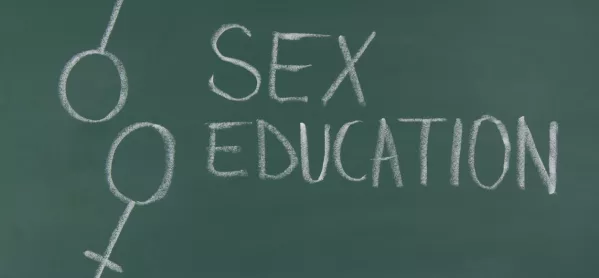Sex.
In the classroom, it’s a word that elicits nervous sniggers and uncomfortable silences. It is also a word that encourages posturing and bravado among those keen to demonstrate their maturity and knowledge. But it is, of course, something a wee bit forbidden and a wee bit grown-up. Children are naturally curious, and it is essential that they are given clear, open and unbiased opportunities to discover and understand their own development, both physically and emotionally.
Background: Students get 8m free sanitary products
Opinion: ‘Periods aren’t shameful - let’s talk about them in school’
Big read: How to adapt sex education for students with special needs
Clearly, we are not just talking about sex. We are talking about the whole area of relationships, sexual health and parenthood which, within schools, covers many facets. From hygiene and respect to understanding your body and puberty, to emotional development, sexual relationships and sexual health, it is a major part of the curriculum.
Sex and relationships education in primary
But when should these learning opportunities be presented to pupils? I would suggest that we need to be doing more, earlier, in schools and in society to normalise children’s development.
While periods, boobs and body hair are often reserved for discussions around puberty with girls late into P6 in Scotland (equivalent to Year 5 in England), where does that leave the children who have been coping with their developing bodies since the age of 8? The girl who has been made to feel she should be shaving her legs at 9 because of the teasing of classmates - classmates who don’t understand that it is perfectly normal because they have never been taught that it is.
Much has changed in recent years but it is not always the case that girls in primary schools have access to sanitary bins in their normal toilets. Primary schools must ensure that adequate bins and free sanitary provision are provided without stigma and without having to request it.
If we leave teaching gender identity until the end of primary school, where does that leave the children who are struggling to see where they fit? Those children who reject the idea of the gender stereotypes that society has enforced upon them? We need to teach children from the outset that their sex does not define who they are, how they should behave, who they should have relationships with, and the future that they can have for themselves.
If we do not ingrain these messages and normalise children’s experiences from a young age, we are doing them a disservice. Every child’s version of growing up is valid. And every child needs to be taught that. They need to be able to understand their own emotional and physical experiences as well as those of their peers.
Empathy and knowledge are key to providing our young people with the skills to continue their journey into adulthood with grace, kindness and confidence.
Let’s ensure that we don’t leave it too late.
Kirsty Crommie is a primary teacher and children’s book blogger in Scotland. She tweets @KCrommie






